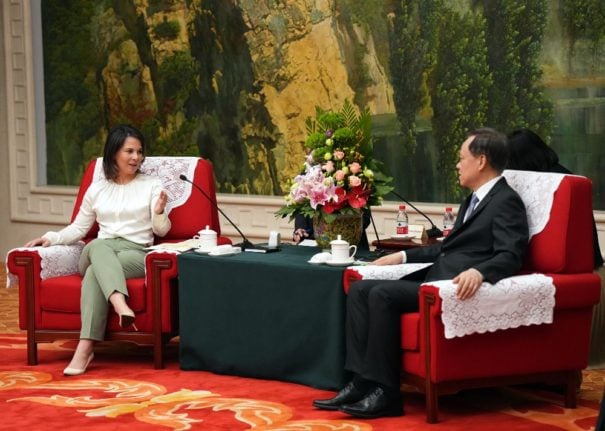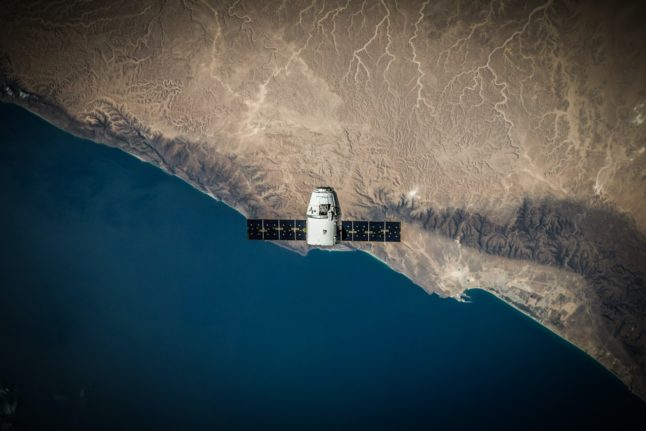“We not only have a common position with regard to the European stance, but if we share a common internal market, then we cannot have different positions on the EU’s largest trading partner,” Baerbock told reporters in Tianjin.
Macron, who visited China last week, said in an interview at the weekend that Europe should not be a “follower” of either Washington or Beijing or get caught up in any escalation over Taiwan.
The French president stood by his controversial comments on Wednesday on a visit to Amsterdam, saying that being a US ally did not mean being a “vassal”.
Asked about Macron’s remarks, Baerbock said the fact he had visited China alongside EU chief Ursula von der Leyen was “a very important sign”.
READ ALSO: Germany’s Scholz arrives in China to boost economic ties
“Despite all the differences that we have in the European Union… we are not only close to each other on the central issues of our interests and values, but we (also) pursue common strategic approaches,” she said.
German Defence Minister Boris Pistorius had earlier on Thursday taken a harsher tone, calling Macron’s remarks “unfortunate”.
“We have never been in danger of becoming or being a vassal of the United States,” Pistorius said on a visit to Mali.
Macron’s weekend interview drew praise as “brilliant” in China — which rejects US support of what it sees as its breakaway province of Taiwan.
China and Taiwan split following a civil war in 1949.
In a statement ahead of her trip, Baerbock said she was keen to strike the “right balance” with China, which she said “increasingly wants to shape the world order according to its own designs”.
“I want to gain a first-hand impression of the direction that the new leadership is heading in, also with regard to the balance between political control and economic openness,” she said.



 Please whitelist us to continue reading.
Please whitelist us to continue reading.
Member comments